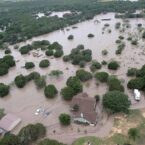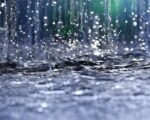
Scientists Find Evidence That Rain First Fell on Earth 4 Billion Years Ago
Scientists have discovered compelling evidence suggesting that Earth’s first rain fell as early as 4 billion years ago, much earlier than previously believed. Published in Nature Geoscience, the research reveals that the hydrological cycle—the process by which water moves ...

New Study Finds That Humans Age in Bursts, Particularly During These Two Ages
Aging is a complex process affecting our bodies and minds in various ways. While we often think of aging as a gradual, continuous decline, new research suggests that this process occurs in distinct bursts, particularly around the ages of 44 and 60. The study, published in Nature Aging, ...
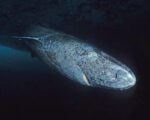
Scientists Look into Anti-aging Secrets of the Greenland Shark, Which Live for Centuries
The Greenland shark (Somniosus microcephalus) has captured scientists’ fascination due to its extraordinary longevity, with some individuals living for up to 500 years. As the longest-living vertebrate known to science, these sharks offer a unique window into understanding the ...

Battery-Like Metals Generate “Dark Oxygen” in the Deep Ocean
In the deep ocean, a fascinating phenomenon known as “dark oxygen” is reshaping our understanding of oxygen production. Unlike the familiar process of photosynthesis, where sunlight drives the creation of oxygen in plants, this new form of oxygen generation occurs in total darkness, ...
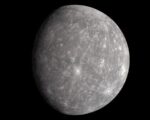
Mercury Could Have A Layer of Diamonds 11-Miles Thick Beneath the Surface
A bi-disciplinary scientific study has revealed that Mercury could have an 11-mile-thick layer of diamonds at the boundary layer of its core and mantle. This extraordinary discovery stems from research into the planet’s least understood aspects. Despite Mercury’s proximity to ...
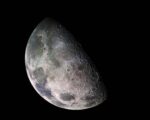
Recently Discovered Lunar Cave May One Day Serve as a Base Camp
The Moon, despite its striking beauty, presents an incredibly hostile environment for human habitation. Temperatures at the lunar equator swing drastically, from scorching highs of 250°F (121°C) during the day to bone-chilling lows of -208°F (-133°C) at night. This extreme temperature ...
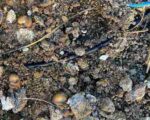
Mushrooms Help Turn Toxic Brownfields into Blooming Meadows
In industrial lots once dominated by toxic soils, Danielle Stevenson’s innovative approach has transformed barren landscapes into vibrant meadows teeming with life. Utilizing fungi and native plants, the environmental toxicologist and founder of DIY Fungi is spearheading efforts ...
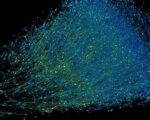
Google and Harvard Team Up to Make the Most Detailed Map of Human Brain Ever
The human brain, a marvel of complexity and significance, continues to intrigue scientists with its enigmatic functions that govern every aspect of human experience. In an extraordinary collaboration, researchers from Harvard University and Google have harnessed advanced machine learning ...
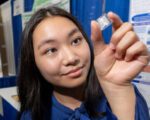
16-Year-Old Wins Highest Prize of $75,000 in Prestigious Science Fair for Her Work on Biomedical Implants
When most people think of school science fairs, images of baking soda volcanoes and egg drops may fill their minds. However, for the most driven STEM students, the Regeneron International Science and Engineering Fair (ISEF) provides a far greater opportunity to showcase their inventions ...











